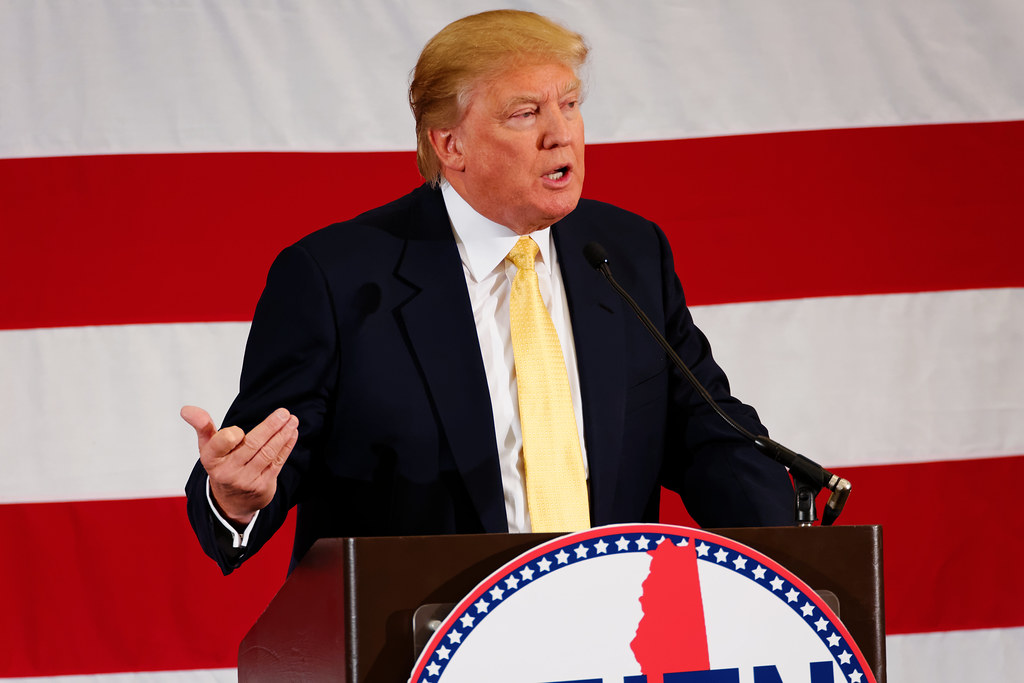Okay, let’s talk about something straight out of a Tom Clancy novel—a second assassination attempt on Donald Trump. Yes, you read that right: second. In under nine weeks, the former president has faced not one, but two assassination attempts. Forget about politics for a minute—whether you’re Team Trump or think he’s like a human wrecking ball on American democracy, the fact that people are trying to take him out is beyond alarming. It’s a big deal for political stability, security, and, oh, I don’t know, not living in a country that feels like a Netflix political thriller.
Let’s break this down in a way that’s both terrifying and oddly fascinating. Buckle up, because we’re diving into what happened, who the alleged shooter is, why this is happening, and what it says about the state of political violence in America.
The Latest Attempt: What Went Down in West Palm Beach
According to CTV News, this latest attempt occurred at Trump’s golf course in West Palm Beach, Florida. Picture this: Trump is out there playing golf (because, of course, he is), and suddenly, Secret Service spots a dude with a rifle hanging out in the bushes. That’s not normal golfing behavior, even for Florida. Thankfully, Trump wasn’t hurt this time, unlike the earlier attempt in Butler, Pennsylvania, a few weeks ago. But let’s pause for a second here—what is going on? How are these assassination attempts happening so frequently? And why is the Secret Service now playing a very dangerous game of Whack-a-Mole with armed assailants?
Shooter Profile: Who Is This Guy?
Now let’s talk about the guy behind the latest attempt. His name is Ryan Wesley Ralth, a 58-year-old from North Carolina, who, according to The New York Times, has pledged allegiance to Ukraine. Yes, you read that right—he’s not your typical suspect in these scenarios. Ralth had previously expressed interest in traveling to Ukraine to fight in the war against Russia, a sentiment that he also shared on social media. So, now we have a would-be assassin with international political motivations. Cool, cool, cool.
What’s even more unsettling is that Ralth has a criminal background and, based on his social media posts, is very politically motivated. He wasn’t there on some spontaneous mission. He had a GoPro on, ready to capture the entire thing—this was a thought-out plan. His escape attempt? Less successful, as law enforcement managed to track him down, thanks to a vigilant witness who spotted his getaway vehicle. This guy wasn’t messing around. Unlike previous attackers in similar scenarios, he wasn’t interested in dying during the attempt, which shows a level of tactical calculation that’s unnerving.
Trump’s Reaction: Truth Social and Political Fallout
Of course, Trump responded on his favorite platform, Truth Social, thanking everyone for their concern and giving a shoutout to the Secret Service for doing what they do best—keeping him alive. But the bigger question is, how are these attackers getting so close? Is there a breakdown in security? Trump, as a former president and active 2024 presidential candidate, has Secret Service protection, but not at the level of a sitting president. President Joe Biden has already weighed in, calling for more personnel and protection for Trump, a move that both sides of the political aisle seem to agree on.
Even Speaker Mike Johnson has jumped into the fray, calling for increased security, pointing out that two assassination attempts in such a short span of time is, well, unprecedented.
Bigger Picture: What Does This Say About Political Violence in America?
So, what does this mean for the rest of us? Let’s zoom out for a second. We’re not just talking about some lunatic with a rifle—we’re talking about a second assassination attempt on a former president. That’s next-level political violence, folks. And it raises some uncomfortable questions about the state of America right now.
Political violence is becoming disturbingly normalized, and that should scare us all. Whether you’re a die-hard Trump supporter or someone who would prefer to never hear his name again, this is a serious issue. It's not just about Trump; it's about the precedent it sets. What happens if political violence becomes the go-to method for dealing with opposing views? Spoiler: it doesn’t end well.
Emotional Levers: Fear, Security, and Control
Let’s tap into some emotions for a second. Whether you realize it or not, this situation strikes at core human fears—fear of violence, fear of instability, fear that the very fabric of democracy is unraveling. These attempts on Trump’s life remind us that no one is invincible, and that’s a jarring thought. We like to believe that our leaders are protected, that our system is stable. But what happens when that illusion cracks?
There’s also a deep desire for control here. We want to believe that law enforcement and security agencies have this under control—that they can keep our political leaders safe, regardless of how controversial they are. But when you have two assassination attempts in under two months, that illusion of control starts to feel a little shaky.
Diagram: Assassination Attempts on Former Presidents vs. Sitting Presidents
| Category | Number of Attempts | Successful | Failed |
|---|---|---|---|
| Sitting Presidents | 3 | 2 | 1 |
| Former Presidents | 2 | 0 | 2 |
Case Studies: When Political Violence Crosses the Line
This isn’t the first time political figures have been targeted, but the frequency is what’s alarming. Let’s look at a few other case studies where political violence reared its ugly head:
- JFK Assassination (1963): A sitting president, taken out by an assassin’s bullet in Dallas. The country was never quite the same after.
- Attempted Assassination of Ronald Reagan (1981): An attack that nearly took Reagan’s life, sparking changes in how presidents are protected.
The difference now is that these attempts are happening in the context of a deeply polarized political climate, with social media acting as an accelerant. People are more radicalized, more emboldened, and it seems like the barriers to political violence are crumbling.
Thought Experiment: What If Trump Had Been Hurt?
Imagine if Trump had actually been injured or killed in one of these attempts. The ripple effect would have been enormous. We’d be looking at civil unrest, with both sides of the political spectrum losing their minds. His supporters would likely see it as a conspiracy, fueling even more political violence. His detractors might feel vindicated, but the chaos that would follow would make 2020 look like a minor spat.
The Role of Social Media in Radicalization
Social media has turned into a breeding ground for political extremism. Platforms like X (formerly Twitter), Facebook, and Truth Social have created echo chambers where people’s beliefs are not only validated but amplified. Ryan Wesley Ralth didn’t hatch his plan in a vacuum—he was likely radicalized through the content he consumed online, a pattern we’ve seen time and again with politically motivated violence.
Conclusion: What Happens Next?
As we move forward, the question remains: How do we stop this? More security? More personnel? Sure, but that’s only a Band-Aid. We need to address the root cause of this political violence—people’s growing disillusionment with the political system and the radicalization that’s happening online. Without addressing these core issues, we’re only going to see more of the same.
But here’s a thought for you: Is political violence becoming the norm? Is this the new America? Or can we still pull back from the brink before this escalates even further? Let us know what you think in the comments below.
Also, if you haven’t already, consider becoming a permanent resident or citizen of the "Shining City on the Web" and join the conversation about the future of political discourse and security in America!
Thought-Provoking Questions for the Comment Section
- Do you think political violence is becoming normalized in America? What can be done to stop it?
- Should former presidents like Trump have the same level of security as sitting presidents, especially given the current political climate?
- How much responsibility do social media platforms have in preventing the radicalization of individuals like Ryan Wesley Ralth?
Frequently Asked Questions (FAQs)
-
What happened during the latest assassination attempt on Donald Trump?
The latest attempt took place at Trump’s golf course in West Palm Beach, where Secret Service spotted a man with a rifle hiding in the bushes. Trump was unharmed, and the suspect was arrested. -
Who is Ryan Wesley Ralth, the alleged shooter?
Ralth is a 58-year-old man from North Carolina who pledged allegiance to Ukraine. He has a criminal background and was politically motivated, according to law enforcement and his social media posts. -
Why has Donald Trump been targeted multiple times?
Trump is a polarizing figure, and his controversial role in politics has made him a target for politically motivated individuals. -
How does the security for former presidents differ from that of sitting presidents?
Former presidents receive Secret Service protection, but it is not at the same level as sitting presidents, which has raised questions in light of these assassination attempts. -
What can be done to prevent future assassination attempts?
Increasing security personnel, improving intelligence, and addressing the root causes of political violence are all potential solutions. -
How does political violence affect the stability of American democracy?
Political violence erodes trust in democratic systems and can lead to further instability, making it a significant threat to the future of democracy. -
What role do social media platforms play in radicalizing individuals?
Social media platforms have become echo chambers for radical ideas, amplifying extremist views and encouraging violent behavior. -
Has political violence become more common in recent years?
Yes, there has been an increase in politically motivated attacks, fueled in part by extreme polarization and radicalization through online platforms. -
Should Donald Trump receive increased security protection?
Many political figures, including President Joe Biden, have called for increased protection for Trump, given the unprecedented nature of these assassination attempts. -
What can the public do to help reduce political violence?
Engaging in open dialogue, supporting non-violent discourse, and pushing for greater accountability on social media platforms are some ways the public can contribute to reducing political violence.





















Post Comment
You must be logged in to post a comment.